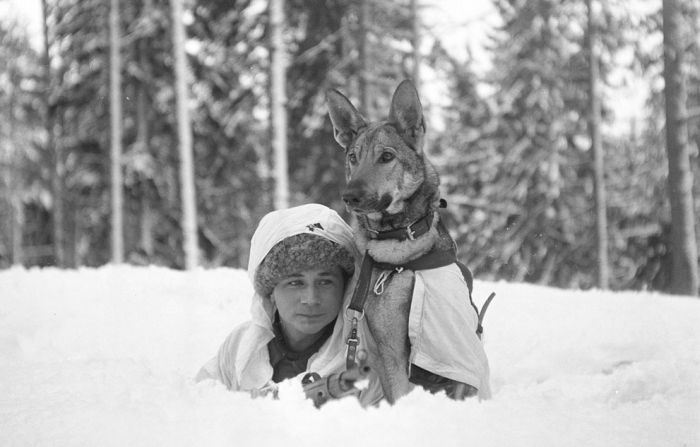|
|
History: World War II Photography, Finnish Defense Forces, Finland
|
The Finnish Military Academy at Hamina continued to turn out officers who served with distinction in the Imperial Russian Army, a disproportionate number rising to the rank of general.
In 1878 the tsar permitted Finland to raise its own national militia through a conscription law providing for selection of recruits by lot to serve either as regulars or reservists. By the beginning of the twentieth century, the Finnish army consisted of eight provincial battalions of infantry and a regiment of dragoons, together with thirty-two reserve companies. In 1901, as part of the Russification movement, the Russian authorities introduced a military service law obligating Finns to serve in the tsarist army, for four years, anywhere within the Russian Empire. Only one regiment of dragoons and one battalion of guards from the Finnish army were to be retained; the rest were to be incorporated in the imperial army. The new law was met by passive resistance in Finland, and it strengthened the Finnish nationalist movement. In a shift of policy in 1905, the conscription law was suspended, and Finns were never again called upon to serve in Russian uniform. Nevertheless, the Russians dissolved the militia, the military academy, and the guards battalion.
Soon after Finland gained independence in December 1917, a nationalistic, middle-class militia known as the White Guards, which had been secretly established in 1904 and 1905 and which had remained underground since then disguised as athletic clubs and other groups, was officially proclaimed the army of the Finnish government under General Mannerheim. This so-called White Army was strengthened and trained by 1,100 officers and noncommissioned officers (NCOs) who had traveled clandestinely to Germany during World War I and had formed the Twenty-seventh Royal Prussian Jaeger Battalion. Returning to Finland, they brought back with them urgently needed small arms captured from the Russians. The White forces were swelled by new conscripts, officers of the former Finnish armed forces, Swedish volunteers, and Finnish officers who had served in the Swedish and in the Russian armies, in addition to the jaegers. After three months of bitter civil conflict, the White Army of about 70,000 troops defeated the Red Guards from the radical wing of the Finnish Social Democratic Party, in May 1918. Both sides suffered thousands of casualties. In four months, the White Guards had evolved from a strongly motivated, but ill-trained, militia into a battle-hardened, disciplined national armed force. Although numerically superior and reinforced by the Russian garrisons in Finland, the Red Guards were deficient in equipment, training, and leadership.
During and after the Civil War, conflict emerged between the younger jaeger officers of the Finnish army and the former tsarist officers in its upper ranks. When most of the Finnish officer corps threatened to resign in 1924 over the dominance of the Russian-trained leadership, most of the Russian officers were moved aside and the jaeger officers began to occupy the higher echelons, bringing the influence of German military doctrine and training methods with them.
|
|









